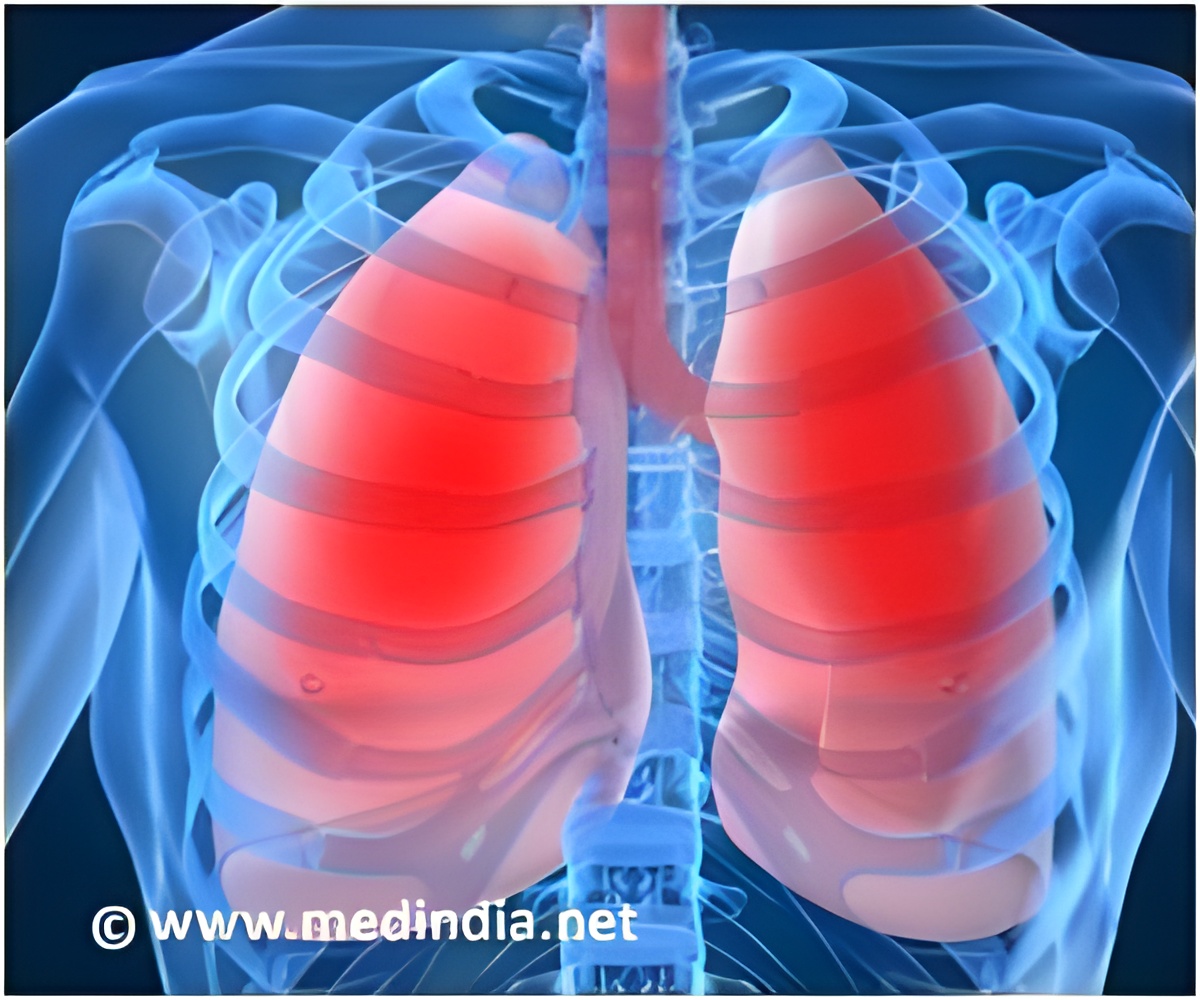
"There are no approved therapies to treat lung cancer patients who develop the second mutation in the EGFR that stops the currently available medicines from working," said Susan Galbraith, M.D., Ph.D., head of the Oncology Innovative Medicines Unit at AstraZeneca. "The innovative breakthrough was finding a series of molecules that could target both the activating and resistance mutant forms of EGFR more potently than normal EGFR, which led to development of the new EGFR kinase inhibitor, AZD9291.
"AZD9291 is highly active in preclinical models and is well tolerated in animal models. It inhibits both activating and resistant EGFR mutations while sparing the normal form of EGFR that is present in normal skin and gut cells, thereby reducing the side effects encountered with currently available medicines," she added. The AstraZeneca scientists first showed that AZD9291 potently inhibited lung cancer cells with mutant EGFR, grown in lab dishes. They then tested the drug on mice bearing lung tumors with activating mutations and mice bearing lung tumors with resistance mutations. AZD9291 showed substantial tumor shrinkage in both groups of mice after 14 days of treatment. After 40 days, the researchers found no visible tumors in these mice, and this effect was sustained for more than 100 days. They also observed similar tumor shrinkage in mice that were genetically modified to develop tumors bearing both the activating and resistance mutations.
When the investigators analyzed blood samples collected from the treated mice, they identified a breakdown product of the parent compound AZD9291, which they called AZ5104, circulating in blood in addition to AZD9291. They then found that AZ5104 is also a potent inhibitor of activating and resistance EGFR mutations, and speculated that this may contribute to the efficacy seen after dosing with AZD9291.
Using data from blood analyses of mice, the researchers then developed a mathematical model to evaluate the dynamics of conversion of AZD9291 to AZ5104 and cumulative tumor-inhibitory effects. These experiments helped them determine the potentially effective doses of AZD9291 for patients with NSCLC harboring both activating and resistance EGFR mutations.
"Findings from preclinical studies have recently been translated to the clinic, where the drug has already demonstrated tumor shrinkage in patients and has been well tolerated, with low rates of side effects," said Galbraith. "The degree of response to treatment with AZD9291 in such a short period of time is very exciting. This new drug has the potential to provide new treatment options for patients in this setting."
Advertisement
Source-Eurekalert












